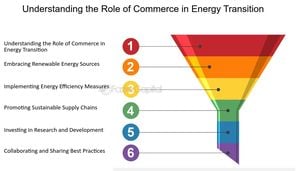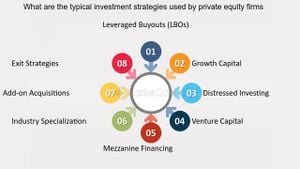With the 2024 election drawing closer, Alexandria Ocasio-Cortez, the dynamic congresswoman from New York, is capturing attention—and not just for her progressive policies. A recent incident involving her pointed criticism of both Elon Musk and Donald Trump has stirred discussions about the behavior and attitudes of elite figures toward the working class during election season.
During her speech at a United Auto Workers (UAW) event in Pennsylvania on October 21, Ocasio-Cortez accused Musk and Trump of trivializing the struggles of working-class Americans. Her remarks were focused on the campaign group America PAC, which Musk backs, urging voters across key swing states to sign petitions with the incentive of winning $1 million. "They're not trying to empathize with us. They are making fun of us," she told the audience, highlighting her concern over the disconnect between big-name politicians and everyday citizens.
Ocasio-Cortez's comments tap deep roots within her district's fabric, as she unearths both frustration and resilience among her constituents. Many of the voters she serves have experienced the grinding pressures of economic uncertainty, and her ability to articulate these shared sentiments has solidified her status as not just another politician but also as someone genuinely invested in the working-class narrative.
Echoing Ocasio-Cortez's sentiments, CNN political analyst Scott Jennings remarked on the curious trend of voters supporting such seemingly divergent candidates as herself and Trump. Jennings analyzed the authentic connection these figures manage to forge with their supporters. According to Jennings, people are drawn to politicians who communicate their honest thoughts without the filter of political scripting, implying this was evident among voters who expressed support for both candidates.
"The thing Trump and AOC have in common is their authenticity," Jennings commented during a segment where he discussed the tendency of voters to shift support across party lines. This authenticity, Jennings suggested, stems from their ability to reflect real issues and emotions, making them relatable figures to voters yearning for more genuine political representation.
Both characters have distinguished themselves as trailblazers within their respective parties; Ocasio-Cortez as the face of progressive Democrats and Trump as the fiery figure rallying conservative bases. This duality sparked fascinating discussions about the current political atmosphere: Are voters beginning to reject the traditional political class altogether? Is the notion of authenticity taking root stronger than party affiliation?
The 2024 election is one of newfound significance, especially as AOC’s star continues to rise. Having comfortably secured her own seat within New York's 14th District, she pointed out instances of precincts blatantly crossing party lines to support both her progressive agenda and Trump’s more traditional GOP platform. Social media buzzed with posts from supporters explaining this baffling trend, with one stating simply, "It’s real simple...Trump and you care for the working class." This reflects the community's desire for change, illuminating the irony of voters embracing two candidates from opposite ends of the political spectrum.
Jennings emphasizes authenticity, illustrating the essence of why Ocasio-Cortez and Trump have developed followings: "People are sick and tired of fake, inauthentic politicians who can only operate off of scripts. They are being handed things by consultants, whose every movement and facial expression is rehearsed." This statement unearths broader conversations about trust and political representation, as many voters continuously voice dissatisfaction with having felt misled by their elected officials.
While there remains disagreement on policy between Ocasio-Cortez and Trump, the thread of commonality appears to be rooted in their approachability and perceived honesty. Voters increasingly seem to favor those who appear to speak freely, perhaps reflecting widespread disenchantment with the polished, rehearsed narratives favored by many mainstream politicians. It’s this discontent that's likely to shape their upcoming electoral strategies.
Ocasio-Cortez's recent speech marked yet another chapter in her mission as she vocally advocates for the labor rights of American families, amplifying the message for the need for genuine discourse within the political arena.
All eyes will be on what this means for the Democratic party and the potential response from other candidates vying for progressive voters. Political analysts are curious: How will the narrative of authenticity continue to play out as election day approaches? Will candidates adapt strategies to align more closely with the sentiments Ocasio-Cortez articulates, or does the rise of the new political class call for fresh candidates?
Much remains uncertain, but one thing is clear: Alexandria Ocasio-Cortez is not just reacting to the political dynamics of 2024; she’s shaping them. Her margins of support, buoyed by authentic engagement and grassroots movements, set the stage for her influence as she works to redefine American politics.
The blend between traditional political values and the urgency expressed by the voting populace might just unravel new potential alliances across party lines, reconfiguring the American political map as it heads toward the upcoming election. Watching how both Ocasio-Cortez and Trump navigate these waters will be just as compelling as the debates and campaigns themselves.



